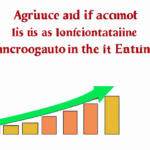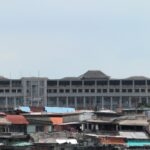The informal economy refers to economic activities that are unregulated and not protected by legal frameworks. It includes self-employment, street vendors, and small-scale businesses. Informal employment refers to work that is not recognized or protected by labor laws, lacking social security benefits or job security. People engaged in the informal economy often face poor working conditions, low wages, and limited access to social protection. They are vulnerable and at risk of exploitation. However, the informal economy also provides livelihood opportunities for those who are unable to find formal employment. Balancing the need for regulation and support with the recognition of the benefits of the informal economy is a complex challenge.
Table of Contents
- Causes and drivers of informal employment
- Comparisons and contrasts between formal and informal economies
- Consequences of the informal economy on individuals and society
- Definition and characteristics of the informal economy
- Government policies and interventions regarding informal employment
(The hidden opportunities of the informal economy | Niti Bhan)
The informal economy and informal employment play a significant role globally, particularly in developing countries. In this alternative economic system, activities are not regulated or protected by the government. Informal workers lack social security, job benefits, and legal protection. Despite these challenges, the informal economy serves as a survival mechanism for many people, providing income when formal employment opportunities are limited.
In the informal economy, workers engage in various activities such as street vending, domestic work, and small-scale agriculture. These activities are often characterized by low wages, long hours, and unsafe working conditions. Informal workers often face exploitation, as their labor is undervalued and their rights are frequently violated.
Furthermore, the informal economy contributes to societal resilience and poverty reduction. It provides livelihood opportunities for those who are excluded from the formal sector due to lack of skills or education. Many informal workers are women, migrants, or youth, who face multiple barriers in accessing formal employment.
However, the informal economy also poses challenges for governments and policymakers. It is difficult to regulate and tax informal activities, resulting in revenue losses for the state. Moreover, informal workers lack access to essential services such as healthcare and education, contributing to social inequality.
Efforts have been made to integrate the informal economy into the formal sector. This includes providing access to financial services, training programs, and social protection for informal workers. By recognizing the contributions of the informal economy and offering support, governments can enhance the well-being of vulnerable workers and promote inclusive economic growth.
In conclusion, the informal economy and informal employment have both positive and negative consequences. While it provides a source of income and resilience for marginalized groups, informal workers face numerous challenges. Balancing regulation and support for the informal economy is crucial to ensure the protection and well-being of informal workers while harnessing the potential for inclusive development.
Causes and drivers of informal employment
Causes and drivers of informal employment are multifaceted and complex, often intertwined with socio-economic factors. One key factor leading to informal employment is inadequate access to formal job opportunities. Limited job creation and high competition contribute to individuals seeking alternative avenues for income generation.
Additionally, lack of education and skills training plays a significant role in driving informal employment. Without adequate qualifications, individuals may find it challenging to secure formal employment and are thus pushed into the informal sector. This not only perpetuates the cycle of poverty but also creates a workforce with limited prospects for professional growth.
Informal employment is further fueled by the need for immediate income generation. Some individuals resort to informal work as a survival strategy, often taking up jobs in the informal economy due to urgent financial needs. This can include street vending, domestic work, or day labor, where the emphasis is on immediate cash rather than long-term stability.
Informal employment is also driven by the lack of proper regulations and enforcement. In many countries, there is a lack of formal labor laws and social protections, making it easier for employers to exploit workers and avoid providing benefits such as healthcare and pensions. This creates an environment where informal work becomes more appealing, despite its vulnerabilities.
Furthermore, cultural factors and social norms can influence the prevalence of informal employment. In some societies, particularly in developing countries, informal work may be more socially accepted or even considered a traditional way of earning a living. This cultural acceptance can contribute to the perpetuation of informal employment practices.
Lastly, macroeconomic factors such as economic instability and recessions can lead to an increase in informal employment. During times of economic downturns, formal job opportunities may decline, leaving individuals with little choice but to turn to the informal sector for income generation.
In conclusion, the causes and drivers of informal employment are influenced by a combination of factors, including limited access to formal job opportunities, lack of education and skills training, immediate income needs, inadequate regulations, cultural acceptance, and macroeconomic conditions. Addressing these underlying issues is crucial in creating an environment that encourages formal employment, safeguards workers’ rights, and promotes sustainable economic growth.
Comparisons and contrasts between formal and informal economies
Comparisons and contrasts between formal and informal economies are crucial in understanding the dynamics and implications of these two distinct economic systems. The formal economy encompasses all legal economic activities, while the informal economy comprises unregulated and often illegal activities.
One key difference lies in the level of government oversight. In the formal economy, businesses operate within the framework of regulations and taxes set by the government. This allows for greater transparency and accountability, ensuring fair competition and worker protection. While the informal economy operates outside these regulations, it provides individuals with an alternative means to survive and earn income.
The formal economy provides stability and security for both businesses and workers. Formal employment offers benefits such as social security, healthcare, and employment protection. Additionally, formal businesses have access to formal credit and can participate in economic growth. In contrast, the absence of legal protections and benefits in the informal economy puts workers at risk of exploitation and vulnerability.
Informal economies often emerge in response to high levels of unemployment and poverty, providing individuals with an avenue to generate income and survive. Informal workers are often self-employed, working in activities such as street vending, home-based production, or casual labor. These activities require low levels of capital investment and can adapt quickly to market demands. However, the lack of job security and steady income make these workers more susceptible to economic shocks.
The informal economy also plays a significant role in wealth redistribution and poverty reduction. It provides opportunities for marginalized groups, such as women and the rural poor, who may not have access to formal employment. Additionally, the informal economy fosters entrepreneurship and innovation, as individuals find creative solutions to meet the needs of their communities.
Despite its benefits, the informal economy poses challenges for governments and policymakers. Its unregulated nature makes it difficult to monitor and collect data, hindering accurate economic planning. Furthermore, informal economic activities often evade taxation, limiting government revenue and hindering public services.
In conclusion, formal and informal economies have distinct characteristics and implications for individuals and societies. The formal economy provides stability and protection, while the informal economy offers flexibility and survival strategies. By understanding the dynamics and trade-offs of both systems, policymakers can design strategies that harness the strengths of both while mitigating the risks associated with informality.
Consequences of the informal economy on individuals and society
Consequences of the informal economy on individuals and society can be profound. For individuals, engaging in the informal economy can lead to precarious and unstable work. Without the protection of formal labour laws, workers in the informal economy may face exploitative working conditions, low wages, and a lack of benefits such as healthcare and social security.
The unpredictable nature of informal employment can also make it difficult for individuals to plan for the future and secure their financial stability. Without access to formal banking services, savings options may be limited, and individuals may be more vulnerable to economic shocks.
Moreover, the lack of formal recognition and documentation of work in the informal economy can hinder individuals’ access to social protection and welfare programs. Without official records of employment, individuals may struggle to access government support, such as unemployment benefits or pensions, leaving them vulnerable in times of need.
For society as a whole, the growth of the informal economy can have significant implications. The informal sector often thrives in economies with high levels of unemployment and underemployment. As more individuals turn to the informal economy for livelihoods, the tax base may shrink, straining government resources and reducing the funds available for public services and infrastructure development.
Additionally, the informal economy can contribute to income inequality. Informal workers often earn lower wages than their formal counterparts, exacerbating disparities in income distribution. This can lead to social tensions and instability, as marginalized individuals and communities bear the brunt of economic inequality.
Furthermore, the informal economy can hinder economic growth and development. The lack of formal regulations and oversight may allow for unfair competition between informal and formal businesses, undermining formal economic sectors. Moreover, the lack of formal record-keeping and enforcement of contracts can hinder investment and discourage business development.
In conclusion, the consequences of the informal economy on individuals and society are far-reaching. For individuals, it can result in precarious work, limited financial security, and reduced access to social protection. For society, it can lead to reduced tax revenues, income inequality, and hindered economic growth. Policies and interventions are needed to address these challenges and ensure that all individuals have access to decent and formal employment opportunities.
(What is the Informal Sector?)
Definition and characteristics of the informal economy
The informal economy refers to economic activities that operate outside the scope of government regulation and official oversight. It encompasses a wide range of work, often involving self-employment or small-scale enterprises, and it typically lacks legal recognition or formal contracts.
Characteristics of the informal economy include the absence of labor rights, such as social protection, fair wages, and job security. Workers in these sectors often face precarious conditions, with irregular income, no access to benefits or pensions, and limited opportunities for career advancement. This lack of protection leaves them vulnerable to exploitation and abuse.
Informal employment, which is closely related to the informal economy, refers to work that is unregulated, unregistered, and often invisible. It includes activities such as street vending, domestic work, and small-scale farming. These jobs are characterized by low productivity, low wages, and a lack of social security.
One defining feature of the informal economy is its resilience and adaptability. In many developing countries, the informal sector provides a vital source of income and employment, particularly for vulnerable groups such as women, youth, and migrants. It serves as a safety net for those who are excluded from the formal labor market due to factors such as lack of education, discrimination, or limited job opportunities.
Despite its significant contribution to the economy and livelihoods of many people, the informal economy also presents challenges for governments and policymakers. The lack of regulation and oversight means that informal businesses often operate in the shadow economy, evading taxes and hindering the government’s ability to provide public services. Additionally, the informal economy can perpetuate inequality, as workers in this sector often earn less and have fewer opportunities for social mobility compared to those in formal employment.
Efforts to address the informal economy require a multi-faceted approach. This includes promoting inclusive growth and creating decent job opportunities in formal sectors, improving social protection for workers in the informal economy, and enabling informal businesses to transition into the formal sector through measures such as simplified registration procedures and access to finance.
In conclusion, the informal economy plays a significant role in many developing countries, providing income and employment for individuals who are excluded from the formal labor market. However, it also poses challenges in terms of labor rights, social protection, and tax evasion. A comprehensive approach is needed to ensure that workers in the informal economy are protected, and that the sector’s potential for inclusive and sustainable growth is harnessed.
Government policies and interventions regarding informal employment
Government policies and interventions regarding informal employment aim to address the challenges faced by workers in this sector. Informal employment refers to work that is not protected by labor laws, lacks social security benefits, and operates outside the formal economy.
One key intervention is the implementation of social protection programs. Governments establish schemes to provide financial assistance, healthcare, and other social benefits to informal workers. These programs help alleviate the vulnerability faced by workers in the informal sector, providing them with a safety net and improving their standard of living.
Another policy commonly employed is the promotion of entrepreneurship and formalization of informal businesses. Governments encourage informal workers to formalize their businesses by providing them with incentives such as tax breaks, access to credit, and training programs. By becoming formal, workers can enjoy legal protection, access social security benefits, and improve their chances of success and growth.
In some cases, governments implement regulations to improve the conditions of informal workers. They may introduce minimum wages, working hour limits, and safety standards for informal employment. These measures aim to protect workers from exploitation and ensure they receive fair compensation for their efforts.
Training and skills development programs are also crucial interventions. Governments invest in training initiatives to equip informal workers with the necessary skills to enhance their productivity and employability. These programs can focus on a wide range of skills, from technical skills specific to certain industries to entrepreneurship and financial management skills.
Furthermore, governments create awareness campaigns to inform informal workers about their rights and the available resources. These campaigns help workers understand their entitlements and take advantage of government-funded programs and support services.
Effective monitoring and evaluation mechanisms are essential for the success of these policies and interventions. Governments establish systems to ensure that the desired outcomes are achieved and address any challenges or shortcomings. This allows for continuous improvement and refinement of policies based on evidence and data.
In conclusion, government policies and interventions play a crucial role in addressing the challenges faced by informal workers. They aim to improve the conditions, opportunities, and social protection available to individuals engaged in informal employment. By providing support, promoting formalization, and implementing regulations, governments strive to create a fairer and more inclusive economy for all workers.













